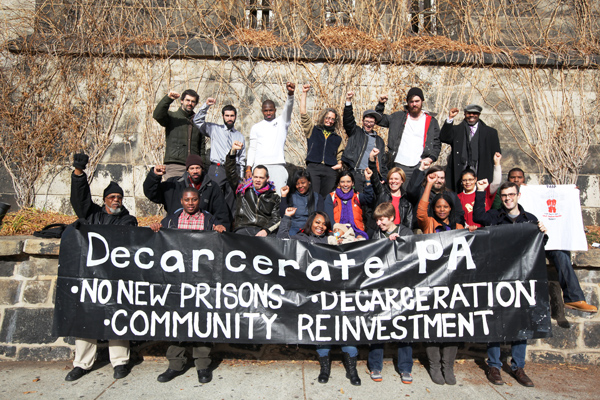In the introduction to the book Taking Sides, the editor extends “an invitation to constructively debate the many thorny questions for which none of us have the answers.” In that spirit, and viewing our publication as a forum for vigorous and open debate, Perspectives presents the following review, and has specifically invited the book’s editor to respond in our pages. We also encourage you to join the discussion. We want to host debate and constructive engagement with the important issues that Taking Sides raises in our comments section. You can participate by leaving a reply at the bottom of the review. – Eds.
It was in a dusty lot in a residential corner of Albuquerque, New Mexico where Amalia’s story came spilling out.1 “This is the earliest memory of my mother,” she said, her eyes locked on a row of greens pushing through sandy soil under an open-faced hoop house. “I was less than two years old. She was picking a row of beets.” The last of ten children of Mexican and indigenous heritage in a family of farmworkers, Amalia says her mother was diagnosed with late-stage cancer while pregnant and given a few years to live.
“We were very poor and my mother felt I wouldn’t survive as a baby. My father worked constantly to feed our family and buy shoes for us once a year. My mother was friends with a white woman in a Jehovah’s Witness church who was married but couldn’t have children.” After her mother died the white couple adopted Amalia when she was still a toddler. “Right away they took me to a doctor because I was malnourished.”
“Then the woman who adopted me, a gracious and wonderful woman, was killed two years later in a car accident. So I lost my mom again.” Her adoptive father, Jack, became her primary caretaker. “He encouraged me as a woman to not let things limit me. He encouraged me to embrace my culture. He made relations with indigenous people in the area so he could take me to ceremonies. He really loved me.”
#Strategy
Anarchism's Mid-Century Turn: A Review and Response to Unruly Equality: U.S. Anarchism in the Twentieth Century, by Andrew Cornell (University of California Press, 2016) by Kristian Williams
Part One
Transitions
No matter how one feels about it, the current state of anarchism has represented something of a mystery: What was once a mass movement based mainly in working class immigrant communities is now an archipelago of subcultural scenes inhabited largely by disaffected young people from the white middle class.

Andrew Cornell’s Unruly Equality: U.S. Anarchism in the Twentieth Century supplies the first convincing account of that transition. Beginning in 1916, just before the Red Scare, and closing in 1972, just as our present movement was taking shape, the book serves as “a prehistory of contemporary anarchism.” Giving particular attention to the middle decades when anarchism seemed to disappear, Cornell uncovers a missing history and finds “a clear line of continuity rather than a defined break.” The line he traces is continuous, but it is not straight. There may not be a gap, but there was most certainly a turn.
Coming of Age: A Review of Unruly Equality: U.S. Anarchism in the Twentieth Century, by Andrew Cornell (University of California Press, 2016), by Jeremy Louzao
I was 15, living in a suburban middle-class part of Anchorage, Alaska, when the subversive package arrived—my first committed step on the anarchist path.
It was the winter of 1996, and maybe just six months before, some anecdotes from a beloved radical teacher got me curious about a thing called anarchism. Soon enough, I was doodling circle-As in the margins of my notebooks. Then I was trying, through brute force, to make my way through Howard Zinn and Noam Chomsky. Then—oh, the most cliché gateway into anarchism for kids of my demographic—I found punk rock. And there, in the insert of one of my first punk albums, I learned about AK Press. Brandishing a 56k modem, a phone, and a few hundred dollars that I got once a year from Alaska’s strange, oil-based dividend checks, I ordered a load of literature and odds and ends: Anarchy by Errico Malatesta. Living My Life by Emma Goldman, The Ecology of Freedom by Murray Bookchin, something about participatory economics by Michael Albert; Situationist pamphlets and grassroots organizing manuals; tiny punkish pins and a slew of garish t-shirts crammed with ironic faux-corporate logos, stenciled fists, and slogans in block letters. I’ll admit that, for a little while, I just basked in my new consumer identity as an anarchist. Then I actually read the stuff and, Wow, I really was an anarchist! From that cacophonous, often inscrutable, mix of texts, I found a personal worldview, ethics, even a spirituality that came to guide the course of my life.
Brick by Brick: Creating a World Without Prisons, by Layne Mullett
This essay appears in the current issue of Perspectives on Anarchist Theory, N. 28, on the topic of Justice. The full issue is available from AK Press here!
Since the publication of Michelle Alexander’s The New Jim Crow: Mass Incarceration in the Age of Colorblindness in 2012, there has been much talk about the need to end mass incarceration. More and more people are speaking publicly about the moral and financial implications of maintaining the world’s largest prison system. However, what it means to end mass incarceration, and what it would take to end it, is less clear.
Mass incarceration plays a central role in maintaining state and capitalist power in the United States, and abolishing the prison system must play a central role in movements for radical change. Mass incarceration allows the state to perpetuate unpopular economic policies that would not be possible in the face of strong resistance movements. While reform efforts might cause the structures of mass incarceration to shift, and lead to decreases in the prison population (as is already happening in some places), a more fundamental transformation is necessary if we hope to see an actual rather than cosmetic shift in the meaning and practice of “justice.”

Our efforts to end mass incarceration cannot be rooted in reform, but must instead address the structural roots that have given rise to the world’s largest prison system. We must create movements that thrive on our differences and build on our strengths. The prison system sits at the nexus of multiple forms of oppression, so we must generate analysis and resistance that is intersectional. Supporting political prisoners, developing the capacity to withstand state repression, and embracing meaningful forms of justice and healing, horizontal models of sharing power, and feminist and queer ways of understanding the multitude of possible futures are all part of this struggle.
Field Notes From an Archipelago: A Review of Grabbing Back: Essays Against the Global Land Grab (AK Press, 2014), edited by Alexander Reid Ross, by Will Munger
A land and water grab is happening in the canyons and plateaus where I live in rural Utah. Several Canadian corporations backed by transnational investors are moving in to extract tar sands and oil shale on public lands. These outfits are the spear tips of a host of operators who are trying to strip mine the world’s dirtiest oil in the headwaters of the Colorado River, one of North America’s most endangered rivers.
In a region already hit by more than a decade of drought, the mining corporations are drilling deep into underground aquifers to pump water for their processing operations. At the ranch where I work, the springs in the canyon downstream from the initial mine are drying up. The ranching family is one of the first to be impacted by the mine, but there are bigger implications, as waste discharged from the mines will impact more than 30 million people who rely on the Colorado River for drinking water and irrigation.
And then there are the climate change consequences. According to industry backers, there are more potential fossil fuels in the Green River formation that stretches across Utah, Wyoming, and Colorado than the Alberta tar sands. If the infrastructure for these types of megaprojects is completed, there is an almost certainty of being locked in a path toward catastrophic climate change.
 With these stunning contradictions in mind, and with all legal options exhausted, local people and climate justice rebels took matters into their own hands in the summer of 2014 by establishing a resistance camp on the mine lease in order to halt mining operations. Amidst a summer of blockades, police repression, and the stresses of day-to-day rural resistance, it’s been a challenge to maintain a global perspective. It’s clear that our fight is being driven by capital and technical knowledge generated through the exploitation of the Alberta tar sands. It’s also clear that there are financiers intending to export these mining operations around the world using corporations deeply tied to the military industrial complex.
With these stunning contradictions in mind, and with all legal options exhausted, local people and climate justice rebels took matters into their own hands in the summer of 2014 by establishing a resistance camp on the mine lease in order to halt mining operations. Amidst a summer of blockades, police repression, and the stresses of day-to-day rural resistance, it’s been a challenge to maintain a global perspective. It’s clear that our fight is being driven by capital and technical knowledge generated through the exploitation of the Alberta tar sands. It’s also clear that there are financiers intending to export these mining operations around the world using corporations deeply tied to the military industrial complex.
But what are the strategic and tactical implications as to how we should carry out our struggle? What are our relationships and responsibilities to other communities fighting exploitative land grabs around the world? How can we use our collective power to fundamentally transform the political and economic structures that facilitate this ecocidal rush?
While thinking through these questions, I came across a copy of Grabbing Back: Essays Against the Global Land Grab. This compilation is billed as an “illustrative field guide to the way people power responds to the global land grab.” It ranges from pieces written by voices new to me, like Yangtze River Delta Earth First!, to long time writers and movement elders, like Grace Lee Boggs, Max Rameau, Vandana Shiva, Noam Chomsky, and Silvia Federici.
“In This World but Not Necessarily of It:” The Trajectories of Antiauthoritarian Movements. A Review of Chris Dixon’s Another Politics: Talking Across Today's Transformative Movements, by Craig Fortier
This review of Chris Dixon’s Another Politics appears in the current issue of Perspectives, available here from AK Press.
It was one of those meetings where the room we booked was far too large for the number of people who actually showed up. It was the type of meeting where you rearrange the chairs to form a small circle in a corner so that the disappointing turnout feels less deflating. Myself and three other members of No One Is Illegal-Toronto huddled to discuss two fledgling campaigns we were involved in. The first was the awkwardly named “Don’t Ask, Don’t Tell”1 campaign that hoped to mobilize toward a municipal policy that would bar city staff from asking for immigration identification or reporting someone’s immigration status to the authorities. The second was our anti-deportation direct action casework, which evolved from a model developed by the Ontario Coalition Against Poverty to fight welfare bureaucracy. We had faced a soul-sucking defeat earlier that year following the deportation of beloved community activist Queen Nzinga, who was arrested by Toronto police at a bake sale during International Women’s Day. It was mid-summer 2005, and the day-to-day grind of organizing had taken its toll on our collective energies. Without the bulk of the group’s members, we decided to not have any discussions about nuts and bolts of organizing upcoming events or actions and instead have a more general conversation about the direction of our collective.  It was in that discussion that I first became aware of what Chris Dixon (2014) explains, in his book Another Politics: Talking Across Today’s Transformative Movements, is a fundamental principle underlying the antiauthoritarian current in today’s social movements: we were trying to figure out how to work “in the space between our transformative aspirations and actually existing social realties” (8). We saw in those campaigns two very different yet interconnected desires – the prefigurative aspirations of a world where people had the freedom to move and the freedom to stay, and the struggle to dismantle the state, capitalism, and the white supremacist settler colonial logics that undergird Canada’s immigration laws.
It was in that discussion that I first became aware of what Chris Dixon (2014) explains, in his book Another Politics: Talking Across Today’s Transformative Movements, is a fundamental principle underlying the antiauthoritarian current in today’s social movements: we were trying to figure out how to work “in the space between our transformative aspirations and actually existing social realties” (8). We saw in those campaigns two very different yet interconnected desires – the prefigurative aspirations of a world where people had the freedom to move and the freedom to stay, and the struggle to dismantle the state, capitalism, and the white supremacist settler colonial logics that undergird Canada’s immigration laws.
Breaking the Chains of Command: Anarchist Veterans of the US Military, by Brad Thomson
This piece appears in the current issue of Perspectives on Anarchist Theory, N. 28, on Justice available from AK Press here. Brad received an Institute for Anarchist Studies writing grant to assist in the completion of this piece.
“War is the health of the State” – Randolph Bourne, written during WW I
“Mutiny is the conscience of war” – Common trench graffiti during WW I
Introduction
War and military occupation are among the most overwhelming demonstrations of state power. Rooted in an anti-state analysis, the anarchist position on geopolitical power struggles between nation-states is unequivocal opposition, especially in reference to international interventions by the US military.
The logical conclusion might be that anarchists should categorically oppose the individuals who are part of the institution of the US military: the troops. Similarly, it may follow that those people who make up the military and veterans would be among the most hostile toward anarchist ideals and action.
However, through my involvement in anti-war movements and anarchist circles over the last ten years, I have encountered a surprising number of anarchists opposed to the US military who are themselves US veterans. For many of them, their experience as GIs (“Government Issue,” a nickname commenting on the fact that service members are treated as government property) played a significant role in forming and developing their anti-authoritarian and anarchist analysis. What follows is based on interviews with a number of anarchists and anti-authoritarians who also happen to be military veterans.

(Chicago, 2012: US military Vets throw their medals back during anti-NATO protests. This is Jacob George, a vet who I had hoped to interview as part of the project, who later took his own life.)
Insurgent Islands: A Continuing Conversation on Anarchism with Principles, by Kevin Van Meter
“Freely Disassociating” appeared in June 2015. Although it was written a year prior, the half dozen Left and radical publications to which it was initially submitted would not print it. Since its publication by Perspectives on Anarchist Theory inquiries and positive responses (such as Scott Campbell’s, on which I have commented upon elsewhere ) have found their way to me either directly or through intermediaries. Of course there was a series of irrational and nonsensical comments online that only served to confirm my claim that there isn’t an “audience that can access arguments and positions outside those with which it already agrees.” And for that matter, the positive responses confirm this as well. What is interesting about those who are generally supportive of my arguments is that they often agree with the analysis of the problems that currently exist in radical movements, but are neither able to completely disassociate from the “tyrannical bitterness” of contemporary radical politics nor to engage with the proposal that anarchism with principles will arise from a political project rather than being proposed a priori.
What I had not fully articulated in the original article is that until there is a counter-pole to current radical movements there cannot be a shift toward creating anarchism with principles. It would violate common sense to suggest that you can decrease X (involvement in radical movements as they are currently composed) and as a result Y (a counter-pole, anarchism with principles) would emerge. Our increasingly ideological anarchism is defined by theoretical practices: the setting of ones own limitations rather than common horizons; obsession with imaginary relations instead of relations between anarchism’s collective imagination and the ability to collectivize them in the world; and there is not a Yes to many, many No’s reversing the call for “One No, Many Yeses.” It is these practices that anarchism with principles seeks to counter. Moreover, and possibly more important, two interrelated problems suggest the need for another passage out of the current malaise. The approach of creating forms of organization, from clandestine cells to non-profits, a priori to the desires and activity that will propel them forward, postulate purpose, set priorities, and provide the content and context in which they will operate is fatal. This is exacerbated by the inability to make a clean break from current radical movements and instead align oneself with the rich, substantive history of revolutionary ideas and practices. Until these three separate issues are properly addressed the preconditions required for anarchism with principles to develop cannot be established. I will take each issue in turn.
Towards a Fatter Insurrection: Introduction to a Revolutionary Body Liberation Movement, by Shane Burley
After Jessica parked, she was too busy juggling her phone and keys to notice the crowd of teenage boys moving toward her vehicle. As she got out she immediately recognized what was happening. It wasn’t the first time. She began walking to the café as … Read more
Towards an Anarchism with Principles: A Response to “Freely Disassociating,” by Scott Campbell

I read with interest Kevin Van Meter’s recent essay, Freely Disassociating: Three Stories on Contemporary Radical Movements published by Perspectives on Anarchist Theory on the Institute for Anarchist Studies website. In it, he discusses the current climate within the anarchist movement, painting a grim picture where increasingly meaningless labels and judgments get tossed about like political hand grenades, shutting down discussion, utilizing guilt-by-association, fomenting an atmosphere of anti-intellectualism and devolving into moralizing-outrage-as-activism. In his third of the three anecdotes he shares, he also elaborates how association with the anarchist movement can lead to unreasonable expectations and standards being placed on an individual. As a result, the radical movement has largely become a void consumed by the loudest voices or the latest controversy, leading people to disassociate from it.
Facing this scenario, Van Meter argues for developing an “anarchism with principles” based in a milieu of “working class, and revolutionary, intellectual culture.” The principles would emerge through dialog, debate, organizing and application in struggle.


